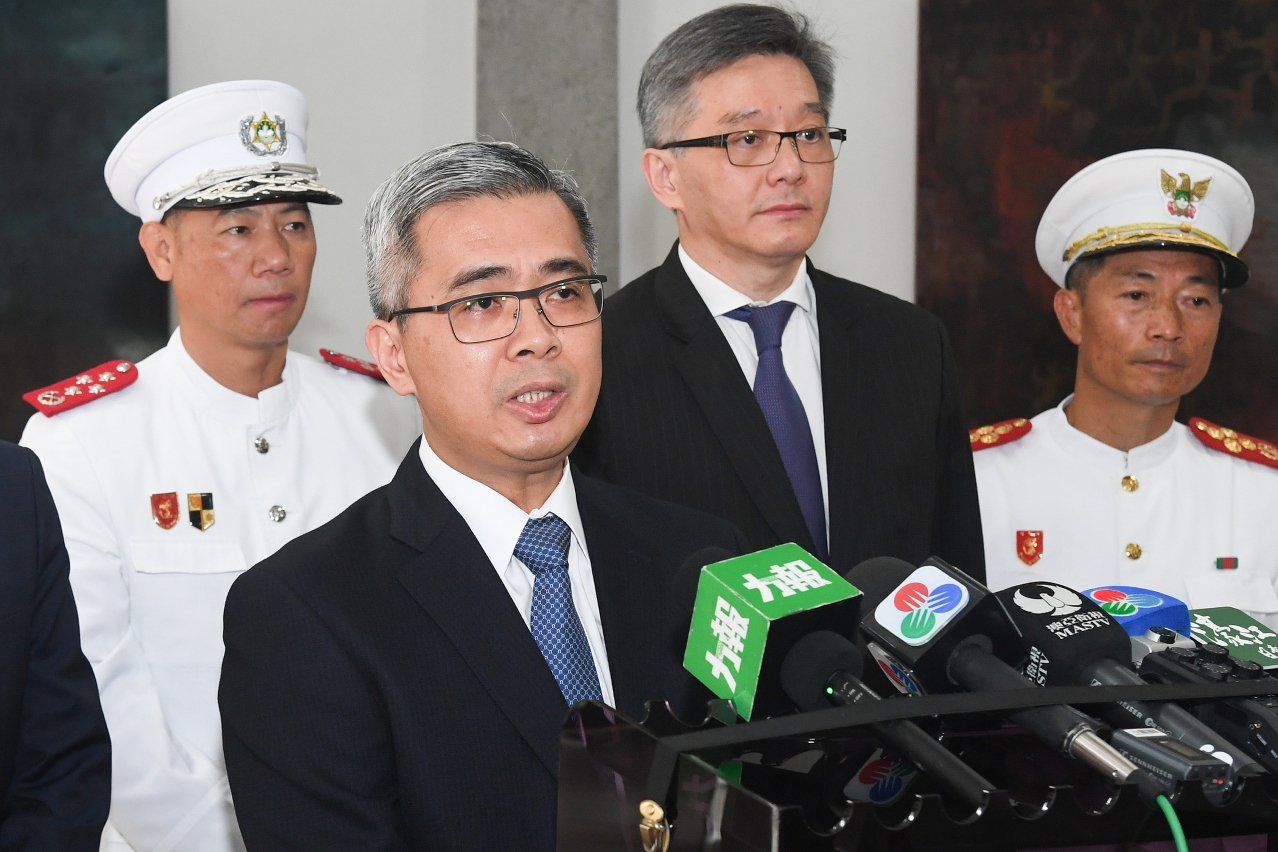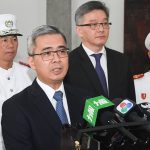 The Secretary for Security, Mr Wong Sio Chak, speaks to reporters.
The Secretary for Security, Mr Wong Sio Chak, speaks to reporters.
The Secretary for Security, Mr Wong Sio Chak, today said that punishing – or taking steps to limit – the spread of rumour during a public emergency, was a common practice in communities internationally.
Macao’s current Penal Code did not have an article specifically relating to limiting the spreading of false information in such situations. To safeguard the public interest, the Government had the responsibility to fill that gap.
In his comments to reporters, the Secretary responded to a suggestion raised by some community members that a mechanism for curbing rumour could be created via amendment to the Penal Code, instead of via the Civil Protection Law bill.
Mr Wong pointed out such a suggestion not only went against Macao’s legal traditions, but would also change the city’s legal framework and practices in relation to criminal matters. He explained that the Penal Code was a general law while the envisaged Civil Protection Law was a special law: the latter would become effective only in public emergencies.
The spreading of rumours during a public emergency could cause severe anxiety in the community and pose supplementary danger to social stability relative to any damage wrought by the public emergency itself, he stressed.
The Secretary mentioned that – during the public consultation period for the bill – the topic of similar rumour-limiting initiatives for public emergencies in other jurisdictions, including India, had been raised, indicating it was an international practice.
The Government noted that an Indian court ruled against an article of law aimed at limiting spread of rumour, as proposed under an amendment to that country’s Information Technology Act. The SAR Government learnt that the ruling was due to some fault in expression that had been identified in the relevant article.
Mr Wong issued an assurance that the Government would not copy laws of other places directly to Macao. The Government would only propose articles of law that fulfilled the public interest, and protected freedom of speech and press freedom.
Effort in terms of civil protection should be led by the Government, with participation from the public, Mr Wong said. He added the security authorities appreciated and welcomed suggestions or any critique from the public, and were open to any constructive opinions and suggestions.
The Civil Protection Law bill passed its first reading on 10 June in the Legislative Assembly. It was now being discussed in one of the Legislative Assembly’s standing committees.
Mr Wong mentioned the security authorities’ active effort in promoting – during the public consultation period for the bill – a better understanding of the bill within the community. The Government would continue to work closely with the Legislative Assembly during the legislative procedures, he added.


